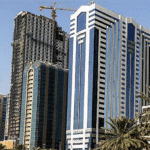Table of Contents
Dubai has become one of the most attractive destinations for global real estate investors. With its world-class infrastructure, business-friendly environment, luxury lifestyle, and tax benefits, the city welcomes both residents and non-residents who want to own property. Many are curious about how a foreigner can buy property in Dubai.
Since the 2002 freehold property law, foreigners have been legally allowed to buy, sell, and rent out real estate in designated freehold zones. Today, thousands of international buyers invest in Dubai’s property market every year from high-rise apartments in Dubai Marina to luxury villas in Palm Jumeirah.
In this detailed guide, we’ll cover everything you need to know as a foreigner looking to invest in Dubai property in 2025, including Can foreigner buy property in dubai?
Who Can Buy Property in Dubai as a Foreigner?
Foreign nationals, including expats living in Dubai and international buyers who are not UAE residents, can legally purchase property in designated freehold areas.
Requirements:
- A valid passport is enough for identification
- For financing: additional documents (proof of income, bank statements) may be required
- The buyer must be 21 years or older
Expats already living in Dubai with a UAE residence visa have access to more financing options compared to international non-residents.
Documents Needed to Buy Property in Dubai
If you are still wondering, can foreigner buy property in dubai? This guide will answer all your questions.
The process is straightforward, and the paperwork is minimal compared to many other global cities.
Basic documents:
- Valid passport (for identity verification)
- Proof of address (for some transactions)
- For residents: Emirates ID & residence visa copy
For mortgage buyers:
- Bank statements (3–6 months)
- Salary certificate or proof of income
- Credit history reports
Where Can Foreigners Buy Property in Dubai?
Not all areas in Dubai are open to foreign ownership. The Dubai government has designated freehold zones where expats and foreign nationals can own 100% of the property.
Popular Freehold Communities for Foreign Investors
- Dubai Marina: Luxury waterfront apartments with stunning views and high rental demand
- Downtown Dubai: Home to the Burj Khalifa, Dubai Mall, and upscale living
- Palm Jumeirah: Iconic island villas and high-end beachfront apartments
- Business Bay: Urban lifestyle with mixed residential and commercial properties
- Jumeirah Village Circle (JVC): Affordable housing with family-friendly amenities
- Dubai Hills Estate: Master-planned community with golf courses and green spaces
- DAMAC Hills 2: Budget-friendly villas and townhouses
- Arabian Ranches: Spacious family villas in a suburban setting
Emerging Areas for 2025: Dubai South (near Al Maktoum Airport) and MBR City are gaining investor attention
Know more about freehold vs leashold
Types of Properties Foreigners Can Buy
Dubai offers a wide range of property types suitable for both investors and end-users.
- Apartments: Studio to penthouse units in high-rise towers
- Villas & Townhouses: Ranging from affordable family homes to ultra-luxury beachfront villas
- Off-Plan Properties: Buy directly from developers before completion, often with flexible payment plans
- Commercial Properties: Office spaces, retail units, and warehouses (depending on freehold zones). before dive into commercial properties you may need to read commecial properties guide
Benefits of Buying Property in Dubai as a Foreigner
- Attractive Rental Yields
- Apartments: up to 11% ROI
- Villas: up to 8% ROI
Some communities even higher depending on demand
- Residency Visa Opportunities
- Investment of AED 750,000+ may qualify buyers for a 2-year residency visa
- Larger investments can qualify for 5-year or 10-year Golden Visa.
Tax Benefits
- No property tax
- No capital gains tax
- No annual ownership tax
Strong Market Growth
- Dubai’s real estate market continues to expand with global demand
- Major infrastructure projects boost long-term value
Safe & Regulated Market
- Dubai Land Department (DLD) ensures transparency
- Escrow accounts protect buyers of off-plan properties
Financing Options for Foreign Buyers
Foreigners can apply for mortgages from UAE banks, though the terms differ for non-residents.
Mortgage details:
- Loan-to-Value (LTV):
- Residents: up to 80% financing
- Non-residents: usually 50–60% financing
Sharia-Compliant Islamic Mortgages are also available for investors seeking interest-free structures.
Always compare offers across multiple banks — eligibility and rates differ.
Documents required:
- Passport copy
- Bank statements
- Proof of income
Tip: Always compare bank offers and check eligibility before committing.
Costs of Buying Property in Dubai
Apart from the property price, buyers must budget for transaction fees.
Typical costs include:
- Dubai Land Department (DLD) Transfer Fee: 4% of property value
- Registration Trustee Fee: AED 2,000–4,000
- Mortgage Registration Fee: 0.25% of loan value
- Real Estate Agent Commission: usually 2%
- NOC (No Objection Certificate) Fee: AED 500–5,000 (for secondary sales)
Step-by-Step Process to Buy Property in Dubai as a Foreigner
- Choose your property – Ready or off-plan in freehold zones
- Sign MOU (Memorandum of Understanding) – Agreement between buyer & seller
- Pay deposit – Usually 10% of property value
- Apply for NOC – Developer approval for ownership transfer
- Register with DLD – Pay fees and receive title dee.
Risk and considerations for foreign investors
- Off-plan delays: Check developer reputation and escrow protections
- Service charges: Annual maintenance fees vary by community
- Market fluctuations: Prices can swing with global economy & oil prices
- Rental regulations: Short-term rental laws require permits from Dubai Tourism (DTCM)
Dubai vs. Other Global Real Estate Hubs
- Rental Yields: Dubai (7–11%) vs. London (2–4%) vs. Singapore (3–5%)
- Taxes: Zero property tax in Dubai vs. high ownership taxes in Europe & U.S.
- Property Prices: More affordable per square foot than Hong Kong, London, or New York
FAQs: Buying Property in Dubai as a Foreigner
- Do I need a UAE residence visa to buy property? No. A valid passport is enough for foreigners to invest.
- Can I buy property in Dubai as a non-resident? Yes. You can own property in freehold zones even if you live abroad.
- Can foreigners inherit property in Dubai? Yes, inheritance is possible under Dubai laws. Proper wills are recommended.
- What’s better: off-plan or ready property? Off-plan: Flexible payment plans, potentially higher appreciation. Ready: Immediate rental income, no construction delays.
Conclusion: Is Dubai a Good Place for Foreigners to Invest in Property?
The answer is a clear yes. Dubai offers:
- 100% freehold ownership in designated areas
- Competitive property prices compared to global cities
- Attractive rental yields and long-term growth potential
- A safe, transparent market backed by the Dubai Land Department
- Added benefits like residency visas and zero property taxes
Whether you’re an overseas investor seeking passive income or an expat planning to settle in Dubai, the city’s real estate market provides exceptional opportunities in 2025 and beyond.
Ready to start your property journey? Explore opportunities with Hundred Homes UAE Real Estate today.





